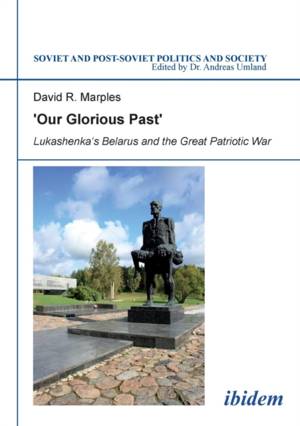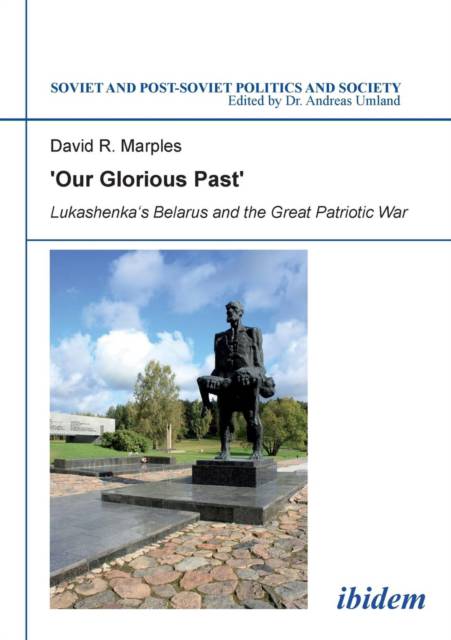
Door een staking bij bpost kan je online bestelling op dit moment iets langer onderweg zijn dan voorzien. Dringend iets nodig? Onze winkels ontvangen jou met open armen!
- Afhalen na 1 uur in een winkel met voorraad
- Gratis thuislevering in België vanaf € 30
- Ruim aanbod met 7 miljoen producten
Door een staking bij bpost kan je online bestelling op dit moment iets langer onderweg zijn dan voorzien. Dringend iets nodig? Onze winkels ontvangen jou met open armen!
- Afhalen na 1 uur in een winkel met voorraad
- Gratis thuislevering in België vanaf € 30
- Ruim aanbod met 7 miljoen producten
Zoeken
´Our Glorious Past´: Lukashenka´s Belarus and the Great Patriotic War
David Marples
€ 41,95
+ 83 punten
Omschrijving
This timely book examines how the regime of President Aliaksandr Lukashenka has used the 'Great Patriotic War' (1941-45) as a key element in state and identity formation in Belarus. The campaign was discernible from 2003 and intensified after a rift with Russia that led to a re-examination of the earlier policy of close political and economic partnership. David R. Marples focuses in particular on the years 2009 and 2010, which commemorated two 65th anniversaries: the liberation of Minsk (3 July 1944) and the end of World War II in Europe (9 May 1945). Using a variety of sources, this unique book critically examines the official interpretations of the war from various angles: the initial invasion, occupation, the Partisans, historic sites and monuments, films, documentaries, museums, schools, and public occasions commemorating some of the major events. Relying on first-hand research, including books recommended by the Ministry of Education, state-controlled media and examinations through personal visits to the major historic sites and monuments of Belarus, Marples explains and measures the effectiveness of Lukashenka's program. In outlining the main tenets of the state interpretation of the war years, the book highlights the distortions and manipulations of historical evidence as well as the dismissal of alternative versions as 'historical revisionism.' It assesses the successes and weaknesses of the campaign as well as its long term effects and prospects.
Specificaties
Betrokkenen
- Auteur(s):
- Uitgeverij:
Inhoud
- Aantal bladzijden:
- 410
- Taal:
- Duits
- Reeks:
- Reeksnummer:
- nr. 124
Eigenschappen
- Productcode (EAN):
- 9783838205748
- Verschijningsdatum:
- 1/02/2014
- Uitvoering:
- Paperback
- Afmetingen:
- 148 mm x 210 mm
- Gewicht:
- 560 g

Alleen bij Standaard Boekhandel
+ 83 punten op je klantenkaart van Standaard Boekhandel
Beoordelingen
We publiceren alleen reviews die voldoen aan de voorwaarden voor reviews. Bekijk onze voorwaarden voor reviews.











